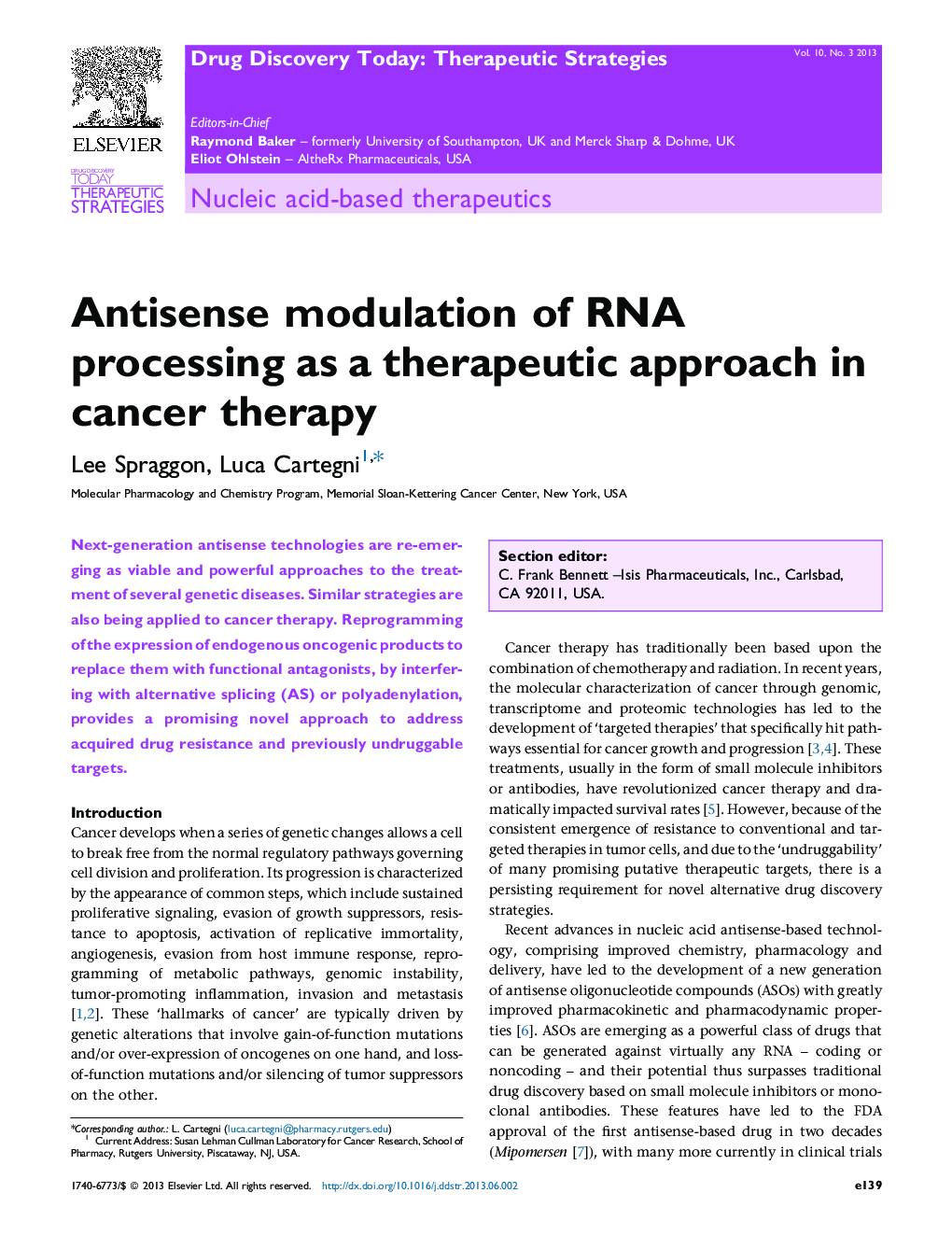| Article ID | Journal | Published Year | Pages | File Type |
|---|---|---|---|---|
| 2082820 | Drug Discovery Today: Therapeutic Strategies | 2013 | 10 Pages |
Abstract
Next-generation antisense technologies are re-emerging as viable and powerful approaches to the treatment of several genetic diseases. Similar strategies are also being applied to cancer therapy. Reprogramming of the expression of endogenous oncogenic products to replace them with functional antagonists, by interfering with alternative splicing (AS) or polyadenylation, provides a promising novel approach to address acquired drug resistance and previously undruggable targets.
Related Topics
Life Sciences
Biochemistry, Genetics and Molecular Biology
Biotechnology
Authors
Lee Spraggon, Luca Cartegni,
